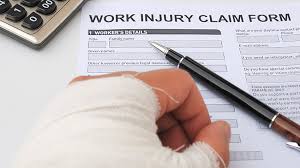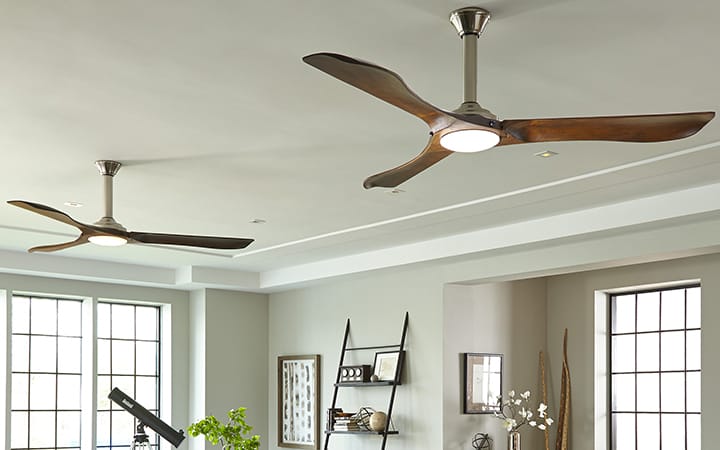Tips for Choosing Laminate Flooring
I get excited when it’s time for the flooring to go in when I am doing a flip.
That means we are wrapping up the renovating portion and the fun portion begins. The decorating and staging. The flooring is an extremely important design to make. I consider several factors when choosing the flooring. I have a “formula” which I use when choosing the other elements, and it’s not unusual for me to install the same products, such as the appliances. But, I like to choose different flooring for each home. I will share my process below.
Have you ever heard that saying which started out “I wish I had a dollar for every ( fill in the blank.)” That’s what I say when it comes to flooring. I wish I had a dollar for every square foot of flooring I have purchased and installed over the years in both our flip homes and our rental homes. I could retire tomorrow.
I will say, of all of the types of flooring we have installed, we have used laminate flooring the most. When laminate first entered the flooring scene years ago, I have to be honest – I was not a fan. I didn’t like the looks and I hated the way it sounded so hollow when you walked across it. To me, the earlier laminate flooring looked like someone had photocopied and decoupaged cheap images of wood onto thin planks of wood. Yuck.
Budget:
Ugh! I really don’t like that word, do you? 🙂 But, like any DIY or renovation project, it’s one of the first considerations you must keep in mind. You wouldn’t think there would be a major difference in total pricing between flooring that cost $1.89/sf and $3.39/sf. I mean, there’s only a $1.50 difference right? Until you multiply that by 1000+ sf. Like any project, you need to break down the costs of the total renovation and decide what percentage you can dedicate to each category. To a new homeowner, it seems logical that you would spend as little per square footage as possible. I mean, savings is savings. Here is where I will a huge and loud NO! Savings is always a good thing, but not when it comes to the item that will receive the most wear and tear in your home. Don’t be fooled into thinking that flooring is flooring is flooring. Especially when it comes to laminate. I would suggest spending a little more and getting a better product that is within your budget’s means.
Durability and Use:
Think of all the foot traffic your poor floors will see during it’s lifetime. Muddy shoes, dogs and cat paws, bouncing balls and legos. Okay, maybe that’s just in MY home. 🙂 We learned the learned way many years ago that choosing the right type of flooring for the home was key to how long said flooring would last. The good thing about much of the newer types of laminate flooring is it is virtually resistant to most scratches and impacts. Best of all, most manufacturers offer fantastic warranties against stains, fading and moisture damages. What I love about using wood laminate flooring in our flip homes is the installation is quick and easy and does not require staining, waxing or varnishing once installed. Manufacturers use an “AC Rating” when it comes to durability, from 1-5. The higher the AC rating, the more durable.

How to Choose Laminate Flooring: A Buyer’s Guide
Laminate flooring is one of the great developments in home improvement of the past 50 years. It’s inexpensive, durable and prefinished, but best of all, an intermediate DIYer can install it with just a few tools. Most of the various styles are installed by just snapping together the planks-no glue or fasteners required. In fact, the trickiest part is choosing the product! That’s what we’ll tell you about.
Types of laminate flooring: Two Styles of Laminate Flooring
There are two types of laminate flooring. Both come in packages of snap-together planks about 1/4 in. thick. But here’s the difference: Engineered wood is made from layers of real wood glued together with each layer perpendicular to the one below and above it for better stability. The top layer is a high-quality thin layer of hardwood coated with acrylic finish. Plastic laminate, on the other hand, is completely artificial, with a layer of melamine on the bottom, a resin-saturated fiberboard center, and a woodgrain print on the top that’s protected by a layer of clear hard plastic. Engineered wood is for purists who prefer the look of natural wood. But you pay for reality. On average, it’s about double the cost of plastic laminate flooring. Its thin top layer of actual hardwood makes it more susceptible to dents, scratches and staining. But unlike plastic laminate flooring, it can be rejuvenated up to three times with careful sanding and refinishing. Because of that, you can expect it to last longer than plastic laminate—if you locate it away from water-prone and high-wear areas. If you’re planning to sell your house in a few years, consider that buyers may appreciate and pay more for the look of real wood. Plastic laminate is for those who want the look of wood flooring in a place that gets wet or seriously abused. The bulletproof topcoat and plastic internal components make laminate floors extremely durable. They stand up to moisture, pet claws, in-line skates and sand-infested flip-flops much better than engineered wood floors. Manufacturers have come light-years in making the wood-grain print look very realistic. Most people can’t even tell it’s not real wood.
Don’t Forget LV Flooring!
Laminate floors aren’t the only option for durability and ease of installation. Next time you’re at the home center, take a gander at luxury vinyl (LV) flooring. There’s luxury vinyl tile (LVT), which looks like ceramic tile, and luxury vinyl plank (LVP), which mimics wood (shown here). Both types are extremely resilient, about the easiest flooring in the world to install and completely waterproof. Since luxury vinyl is so pliable, it’s a great choice over uneven subfloors.
Don’t Forget the Underlayment
All laminate flooring needs foam underlayment. Don’t skip it. Underlayment prevents the floor from clicking on the subfloor as you walk across it and makes it feel a bit softer. It also makes the planks easier to install because it evens out small inconsistencies in the subfloor. Some underlayment has self-adhesive tape to join one row to the next. Others call for separate tape. Be careful to use whatever is required. Go ahead and buy the special laminate and wood flooring installation tool as well. You’ll need it to pull together flooring ends where each row abuts a wall.
Choose a Finish Based on Lifestyle, Not Just Looks
If you lead a quiet life, choose whatever flooring style appeals to you. But if you have one of those crazy households with kids, pets and lots of visitors, be a bit more careful. Flooring with a varied grain pattern, a low-gloss finish or distressed or hand-scraped patina will look much better, much cleaner, much longer than flooring with a glossy, monolithic grain pattern.

The Complete Buyer’s Guide To Choosing Laminate Flooring
When it comes to choosing laminate flooring, we know that it can feel overwhelming. What style to choose, what colours will look best, do you need underlay and how long it will last are all questions that will be going through your mind when trying to choose the perfect laminate flooring for your home.
What is laminate flooring?
Laminate flooring is a type of floor covering that is made from several layers of material to form a firm and durable type of flooring. It usually has at least 4 layers.
What are the different types of laminate flooring?
Laminate flooring comes in a variety of different types. There are 2 main styles of laminate flooring: plastic laminate and engineered wood laminate. Read more about the differences between laminate and engineered wood
What are the different finishes for laminate flooring?
With hundreds, if not thousands of different finishes on the market, choosing the look of your laminate can be a daunting task.
Is laminate flooring waterproof?
There are some laminate flooring planks on the market which are water resistant or waterproof. They need to be installed very carefully and include 100% silicon sealant and a foam backer road around the entire perimeter of the room.

TIPS TO CHOOSE THE BEST LAMINATE FLOOR AND MAKE IT LAST FOR LONG
If you are thinking of moving to a laminate floor, that may be the best choice for your home. Not only is laminate more convenient than hardwood, but it’s also easy to lay (thanks to floating installation and reduced thickness), and can reproduce the same effect of real wood, but with a better performance.
QUESTIONS TO ASK YOURSELF BEFORE CHOOSING A LAMINATE FLOOR
When choosing a laminate floor, an expert seller will be able to ask the right questions to help you find the perfect fit. However, here are five questions you should think about beforehand, so you won’t be caught unprepared
How intensely will it be used? Pets, foot traffic, objects falling and liquids can put a floor to the test. An intense usage will then require a more resilient surface. Make sure you pay particular attention to AC (Abrasion Classes) and IC (Impact Classes) ratings of the product.
What visual effect would you like to obtain? Size and tonality of the slats can help create a particular visual effect. Size will be the main factor, if you are aiming at enhancing an environment by improving its space. The choice of tonality on the other hand, will have to match the furniture, to create a unique and enveloping environment, whether with a modern, rustic, or classic style.
What décor? Laminate has a great variety of décors. In the wood category, oak and walnut are the most popular ones. Skema’s Vision range however, offers alternatives such as cement, metal and resins

TIPS FOR CHOOSING THE BEST LAMINATE FLOORING FOR YOUR HOME
Considering laminate flooring for your home? Check out this essential guide.
A top-quality laminate floor is a great option for busy families: It offers the same great look of real hardwood, without all the hassle. Not only is it easier to maintain (read, next to no maintenance required), it’s also easy to install thanks to floating installation.
How much daily traffic will the floor face?
Pets, kids, entertaining, and even spilled milk can put a floor to the test. More intense use requires a more resilient surface. The durability of laminate flooring products is rated by Abrasion Classes from one to five (one for light traffic, five for heavy traffic).
Will the floor be on the main level or an upper level?
The Impact Class of a flooring product determines how much sound is transferred when an object is dropped. Flooring with a high IC rating helps to minimize impact sound transmission to lower levels, thus reducing or eliminating bothersome noises.






















